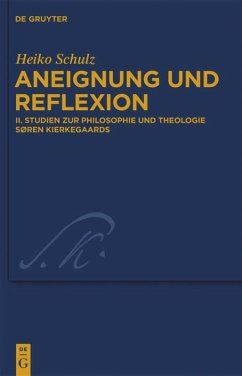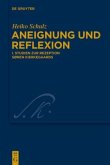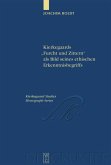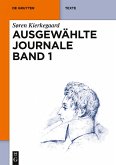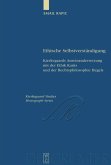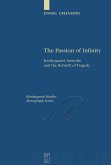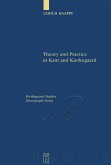This volume presents a collection of published and unpublished writings on the philosophy and theology of Søren Kierkegaard. The broad range of texts and topics included in the volume extends from systematic introductory articles about fundamental theoretical and epistemological questions to specialized examinations of terminological, ontological, and theological issues. The contributions are directed in part toward resolving the hermeneutical problems raised by Kierkegaardâ??s writings. In addition, they take up and expand upon the essential possibilities offered by Kierkegaardâ??s writings for elucidating issues in the philosophy of religion and theology.
Der vorliegende Band bietet eine Sammlung teils andernorts publizierter, teils bislang unveröffentlichter Arbeiten zur Philosophie und Theologie Søren Kierkegaards. Das Spektrum der Texte und Themen reicht von systematischen Einführungsartikeln über wissenschafts- und erkenntnistheoretische Grundlegungsfragen bis hin zu begriffsanalytischen, ontologischen und theologischen Spezialuntersuchungen. Die Beiträge sind durchweg von einem doppelten, genetisch-rekonstruktiven und geltungstheoretisch-konstruktiven Interesse geleitet. Zum einen wollen sie zur Lösung hermeneutischer Probleme beitragen, die Kierkegaards Texte en détail und/oder als Ganzes aufwerfen. Auf der Basis einer kritischen Plausibilitätstaxierung der behandelten Aussagezusammenhänge wird zweitens der Versuch unternommen, deren religionsphilosophisch und/oder theologisch prinzipielles Potential abzuschätzen, aufzunehmen und weiter zu entwickeln. Die Dialektik von Aneignung und Reflexion erweist sich in der Umsetzung beider Teilziele als bestimmend: Kein restlos Reflektiertes kann angeeignet, kein Angeeignetes restlos reflektiert sein.
Der vorliegende Band bietet eine Sammlung teils andernorts publizierter, teils bislang unveröffentlichter Arbeiten zur Philosophie und Theologie Søren Kierkegaards. Das Spektrum der Texte und Themen reicht von systematischen Einführungsartikeln über wissenschafts- und erkenntnistheoretische Grundlegungsfragen bis hin zu begriffsanalytischen, ontologischen und theologischen Spezialuntersuchungen. Die Beiträge sind durchweg von einem doppelten, genetisch-rekonstruktiven und geltungstheoretisch-konstruktiven Interesse geleitet. Zum einen wollen sie zur Lösung hermeneutischer Probleme beitragen, die Kierkegaards Texte en détail und/oder als Ganzes aufwerfen. Auf der Basis einer kritischen Plausibilitätstaxierung der behandelten Aussagezusammenhänge wird zweitens der Versuch unternommen, deren religionsphilosophisch und/oder theologisch prinzipielles Potential abzuschätzen, aufzunehmen und weiter zu entwickeln. Die Dialektik von Aneignung und Reflexion erweist sich in der Umsetzung beider Teilziele als bestimmend: Kein restlos Reflektiertes kann angeeignet, kein Angeeignetes restlos reflektiert sein.

